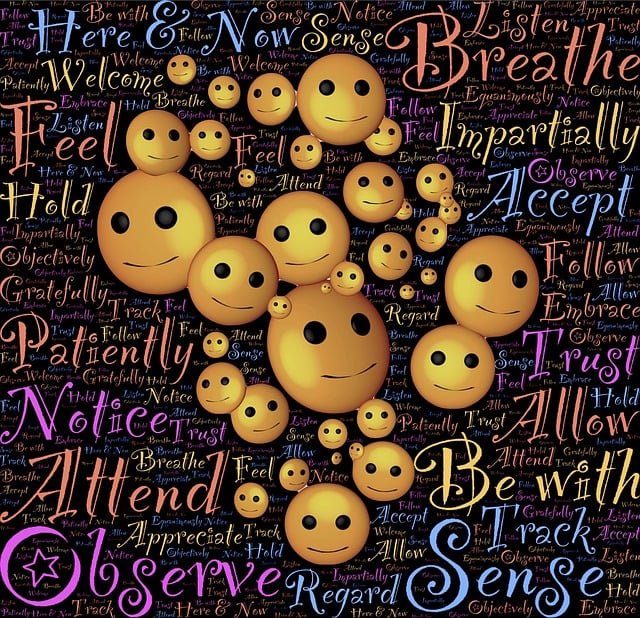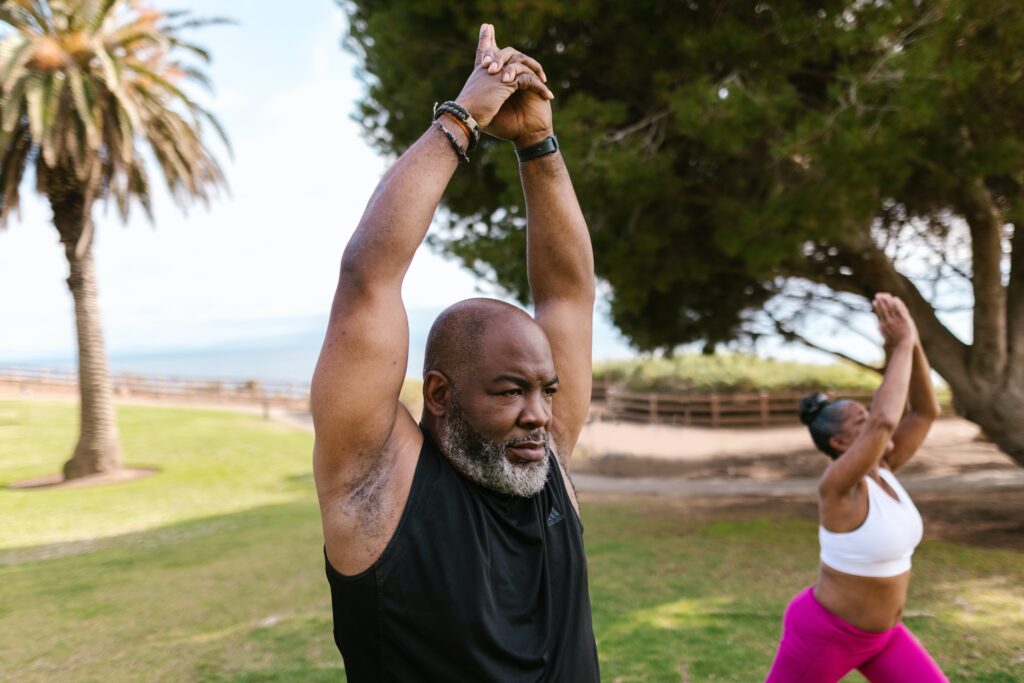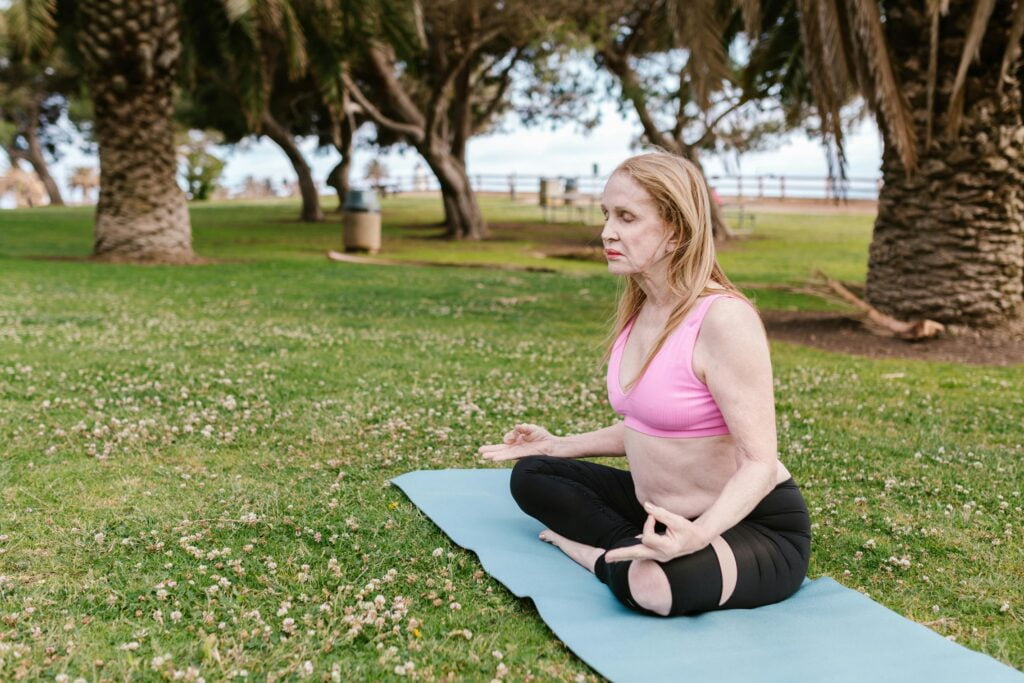Introduction
Holistic wellness practices for mental health: Comparable to the engine that drives our daily lives is mental wellness. It’s critical to take care of our thoughts in the same way that we do our bodies. Consider an automobile that has a powerful body but a poor engine; it will not function properly. In a similar vein, neglecting our mental health can have an adverse effect on our general wellbeing. Mental well-being facilitates stress management, improved decision-making, and a greater appreciation of life.
Let’s now discuss “holistic wellness,” which is a unique approach to maintaining our mental health. To be holistic is to view the situation as a whole, taking into account every aspect rather than just one. Thus, when we discuss holistic wellbeing, we are implying that mental health encompasses more than simply our ideas and emotions. It concerns the interconnectedness of our mind, body, and soul. It’s similar to making sure every piece of a puzzle fits precisely to form a lovely picture.
This article takes you on a trip to learn seven effective and inspiring ways to use holistic wellness practices to take care of your mind. We’ll look at strategies that take the big picture into account rather than just concentrating on one area of our mental health. Consider it a roadmap for invigorating and fortifying your intellect – a voyage towards mental proficiency. So grab a seat, and let’s examine holistic wellness and techniques that can help you rewire your brain!
Understanding Holistic Wellness
Definition of holistic wellness:
Taking care of our bodies, minds, and spirits in addition to our spirits is what holistic wellness entails. Assume you own a unique plant. You wouldn’t only water its leaves to ensure that it develops robust and healthily, would you? In addition, you would provide it with healthy soil, sunlight, and root care. That’s kind of how holistic wellness works; it’s about looking after every component that makes us whole. It’s important to feel well not just in our bodies but also in our thoughts and emotions.

Holistic wellness practices for mental health:
Let’s now discuss how holistic wellbeing affects our mental health in particular. Holistic wellness considers the greater picture rather than concentrating only on one aspect of our lives when we’re not feeling well, such as when we’re worried or depressed. It inquires, “What’s going on in our thoughts, our feelings, and our bodies?” It recognizes that a variety of factors in our lives, including the people we spend time with, the food we eat, and our sleep patterns, are related to our mental health. Thus, a comprehensive approach to mental health entails examining each of these components and figuring out how to best integrate them.
Interconnectedness of mind, body, and spirit:
Think of your body, mind, and soul as your three closest pals who hang out all the time. Because of their close relationship, when one of them is happy, the others also feel good. For instance, your mind feels clearer and more concentrated when you eat healthily and exercise. Thinking happy ideas can improve your spirits and make your thinking more clear. Therefore, realizing how the mind, body, and spirit are interrelated means realizing how much each of these components affects the others. Taking care of one can benefit the others as well, resulting in a lovely balance in our general well-being.
Power of Positive Thinking
Exploring the impact of positive thinking on mental health:
Positive thinking is a mental superpower. It’s like to possessing a mystical key that opens doors to contentment and wellbeing. Thinking optimistically involves more than merely pretending that everything is OK when it’s not. It all comes down to having a positive outlook on obstacles, paying attention to what is working, and having confidence in oneself. Our mental health can be significantly impacted by positive thinking. We feel happier, less anxious, and more prepared to handle whatever comes our way as a result.
Introduction to affirmations and their role in fostering a positive mindset:
Let’s now discuss affirmations, a useful tool that promotes optimistic thinking. Affirmations function as kind reminders that we offer to ourselves. Think of yourself as having a mental cheerleader that tells you things like, “I am worthy,” “I am strong,” or “I can handle challenges.” These encouraging words have the power to alter our perceptions of the world and ourselves. Repetition of affirmations cultivates a positive mental garden of self-assurance and hope. It’s like sowing seeds of positivity.
Case studies and real-life examples of individuals benefiting from positive thinking:
Let’s examine a few true accounts of people who experienced the transformative power of positive thought. Consider Sarah as an example. Her schoolwork used to overwhelm her, but things got easier when she began to think positively and told herself she could handle it. And then there’s Alex, who overcame obstacles in sports by having faith in his own ability. These tales demonstrate how optimistic thinking may improve difficult circumstances. It’s not about running from issues; rather, it’s about tackling them head-on with an attitude of “I can handle this.” Real individuals utilize positive thinking as a potent tool to improve and brighten their lives; it’s not simply a theory.
The Science of Mindfulness Meditation
Being mindful, the goal of meditation is to learn how to manage the playground that is our thoughts with grace and peace, not to escape it. By practicing, we are teaching our minds to be tough, strong, and focused—think of them as mental superheroes!
Overview of mindfulness meditation:
Envision your mind as a bustling playground, where anxieties slide down the slides and ideas swing like swings. Imagine now introducing some serenity to that playground. That’s the effect of mindfulness meditation. We learn to pay attention to the current moment without getting sucked by the ups and downs of our thoughts—it’s like a unique mental game. It’s not about stopping ideas; rather, it’s about seeing them objectively, like clouds passing overhead in the sky.

the benefits of mindfulness for mental health:
Let’s explore the fascinating science of mindfulness now. According to research, practicing mindfulness meditation on a daily basis is similar to exercising our brains. Research indicates that it can lessen tension, enhance concentration, and even cause the areas of our brain linked to happiness and serenity to enlarge! Scientists adore it because they can quantify these beneficial effects, which make it seem to be magic for our minds. Therefore, it’s more than just a soothing pastime—science supports it as an incredible tool for mental wellness.
Practical tips for incorporating mindfulness meditation into daily life:
It’s like adding a dash of serenity to our regular routines when we incorporate mindfulness into our life. First, locate a peaceful area, settle in, and inhale deeply several times. Next, begin by focusing on the inhalation and exhalation patterns of your breath. It’s acceptable if thoughts arise; just gently bring your attention back to your breathing. You can also experiment with mindful practices like eating mindfully, noticing the textures of objects, or even paying great attention to the sounds in your environment. Begin with only a few minutes every day, and you’ll be astonished at how quickly it turns into a relaxing routine.
Nourishing Your Body and Mind
Let’s nourish our bodies with the correct nutrients so we can celebrate our superhero bodies. We’re not just eating when we fuel our bodies and minds with a balanced diet; we’re forging a strong alliance for a longer, better life.
Importance of a balanced and nutritious diet for mental wellness:
Consider the food you eat as the fuel for your body, which is like a superhero. Our bodies require a balanced and nourishing food to keep our minds healthy and happy, just like superheroes need the correct fuel to save the day. A healthy diet is similar to providing our brain with the vitamins and minerals it requires to be focused and alert. Eating a diverse range of nutrients such as fruits, vegetables, whole grains, and proteins prepares our superhero bodies for any kind of adventure—especially the ones we imagine for ourselves.
Role of specific nutrients in supporting cognitive function:
Let’s now explore the science behind how food enhances our cognitive abilities. If your brain were a supercomputer, then each vitamin would be like a unique tool that enhances its functionality. Omega-3 fatty acids, for instance, which are present in nuts and fish, are like super heroes for the brain. They support learning and memory. And then there’s the potent combination of vitamins B and C, which may be found in fruits and vegetables and work like a team to assist our brain in many ways. Eating a wide range of foods high in nutrients provides our brain with the best tools possible for achieving peak cognitive performance.

Holistic approaches to healthy eating and their impact on mental health:
Healthy eating involves more than just tracking calories; it also involves developing a positive mental-physical bond with our food. We might ask our food, “How can you help me feel good today?” in a conversational manner. Mindful eating, in which we give our meals our whole attention, is one complete strategy. This entails tasting every morsel, relishing the flavors, and paying attention to our bodies’ signals that they are full. To ensure we obtain a range of nutrients, we may also eat a rainbow of colors by include various fruits and vegetables in our diet. When we eat with a holistic perspective, it’s not just about what’s on our plate; it’s also about how our food may nourish and uplift our spirits.
Connecting with Nature
Nature is like a buddy who is there for us no matter what. In addition to taking in the natural beauty around us, spending time in the outdoors fosters our mental health in a way that is exclusive to the natural world.
Exploration of ecotherapy and its benefits for mental health:
Think of nature as a big mental hug. Using the therapeutic potential of nature to improve mental health is similar to ecotherapy. Finding serenity and tranquility in the natural world is what happens when we interact with nature, not merely taking use of the great outdoors. Consider it a unique form of therapy in which the breeze, the sky, and the trees serve as our therapists. According to studies, being outside can lower stress and anxiety levels as well as lift our spirits. It functions similarly to giving our minds a dosage of natural medicine.
Activities that promote a connection with nature:
Climbing mountains and exploring deep forests aren’t the only ways to connect with nature (though those are excellent too!). It can be as easy as strolling through a local park, relaxing by a river, or simply soaking up the sun in your backyard. Another wonderful method to get in touch with nature is through gardening; sowing seeds and seeing them grow is like going on a magnificent journey. You may also try feeling the grass under your feet, observing birds, or listening to the sound of leaves rustling. There are many things in nature that can cheer us up and calm our minds.

How spending time outdoors positively affects mental well-being:
Consider the natural world as a mental reset button. Spending time outside feels to our minds like a mental vacation from the daily grind. The crisp air, avian melodies, and the splendor of the natural world can aid in our relaxation and rejuvenation. Our mood improves, our focus sharpens, and we feel more a part of the world when we are in nature. It functions as a kind of natural stress relief. In addition, the exercise we receive from outdoor pursuits is beneficial to our general health. Therefore, going outside is not only enjoyable but also a great way to maintain a happy and healthy mind.
Cultivating Healthy Relationships
It takes more than simply having people around you to cultivate healthy connections; it also involves having a team of helpful individuals who improve your mental health. By establishing trusting relationships, speaking clearly, and settling disputes amicably, you’re assembling a superhero team that will bring pleasure, love, and strength into your life’s
Significance of social connections in mental wellness:
Consider your family and friends to be the heroes in your life story. Having a solid social network is similar to having a team that sticks by you no matter what. Not only is it enjoyable to spend time with people we care about, but it also benefits our mental health. We experience affection, understanding, and a sense of belonging when we have social ties. It resembles a safety net for our feelings. Strong social bonds have been linked to increased resilience, happiness, and reduced stress, according to studies. As a result, the individuals in our immediate environment have a significant impact on the wellbeing of our thoughts.
Building and maintaining positive relationships:
Creating wholesome connections is similar to sowing seeds of happiness and encouragement in our life.. Be considerate, empathetic, and attentive to others when they speak. By doing so, you establish a trusting relationship. It’s similar to constructing a sturdy foundation for a house: the more skillfully you build it, the more problems it can withstand. Select pals who encourage you and help you feel good about yourself as well. It’s similar to having a group of superheroes by your side who support you on life’s journey. Recall that wholesome relationships involve giving and receiving compassion, humor, and support.
Strategies for effective communication and conflict resolution:
Let’s now discuss the superpowers of conflict resolution and successful communication. When it comes to understanding others and expressing our emotions, communication is like having superpowers. Be forthright, sincere, and attentive when you speak. It’s similar like giving your superhero squad a clear signal. It’s critical to resolve disputes amicably when they come up. Express your sentiments with “I” phrases rather than placing blame. Say something like, “I feel upset when…” as an alternative to blaming someone. It’s similar to utilizing a strong instrument to settle disputes amicably. Another superpower is compromise; establishing points of agreement makes people feel valued and heard. Recall that strong bonds are based on cooperation in overcoming obstacles and acknowledging successes.
Regular Exercise for a Healthy Mind
Frequent exercise promotes a healthy and happy mind in addition to keeping one physically fit. Put on your superhero shoes, move to the beat of happiness, and let your body and mind to interact on the well-being playground.
Overview of the link between physical activity and mental health:
Envision your mind and body as closest friends who enjoy playing together. Frequent exercise is excellent for your mind as well as your body, much like their favorite game. Whether you’re dancing, jogging, or participating in sports, your brain releases endorphins, which are enchanted chemicals. These endorphins are pleasant messengers that uplift the spirit and ease anxiety. Hence, engaging in regular exercise is similar to giving your mind a happy workout, strengthening and elevating it.
Types of exercises that specifically benefit the mind:
Let’s now look at some superhero workouts that are great mental health activities. Aerobic activities are similar to brain teasers; examples include jogging, cycling, and fast walking. They improve concentration and memory by increasing blood flow to the brain. Another superhero workout that calms the mind and relieves tension is yoga, which blends soft movements with deep breathing. Your brain can have a party when you perform basic exercises like jumping jacks or dance to your favorite music, which will improve your mood and make you feel happier. Therefore, every action—whether it’s a calming yoga practice or a vigorous dance—is a step in the direction of a better mind.
Developing a sustainable exercise routine for mental well-being:
Making a workout regimen for superheroes is similar to making a mental and physical plan that works for you. Start by selecting something you enjoy doing. This could be going on a walk in the park, taking a dance class, or playing a sport. Have fun with it! Aim for at least 30 minutes of exercise most days of the week because consistency is essential. It’s similar to regularly administering a happy dose to your head. Change things up! To avoid boredom and to keep things interesting, try a variety of activities. It’s similar to having fresh experiences that astound your head. Remember to pay attention to your body’s demands; if it indicates that it needs to relax, give it the time it need. It’s similar to being nice to your closest mental companion.

Quality Sleep as a Mental Health Pillar
A healthy, robust mind is largely dependent on getting enough good sleep. You should cherish it and allow your mind to wander into the fantastical realm of dreams, understanding that every restful night’s sleep is a step closer to improved mental health.
Importance of adequate and quality sleep for mental health:
Consider sleep as a miracle drug that revitalizes your body and mind. It’s like giving your brain the rest it needs to function at its peak when you get enough good-quality sleep. Not only does getting enough sleep make us feel less exhausted, but it also supports healthy mental functioning. Our brains organize memories, process feelings, and rejuvenate for the next day when we sleep. It’s similar to giving our mental health a superhero power boost. Sleep deprivation can impact our mood, impair our ability to concentrate, and even make day-to-day tasks seem more challenging. Thus, getting enough sleep is like having a hidden weapon for a clear, joyful mind.
Tips for improving sleep hygiene:
Establishing a conducive sleep environment is akin to preparing the groundwork for a restful night’s sleep. Start with pillows and a comfy mattress; they’re like the nice bed for your superhero mind. Keep your bedroom quiet and dark to foster a calm environment. Create a regular sleep schedule by adopting a superhero bedtime ritual. Avoid using screens immediately before bed since the bright lights can interfere with your mind’s natural sleep-wake cycle. It’s similar to sending a signal to your brain telling it to unwind. Avoid large meals and coffee right before bed because they can keep your mind awake like sleep disruptors. You’re fostering a friendly environment for restful sleep to do its magic if you adhere to these sleep hygiene recommendations.
The connection between sleep and emotional regulation:
Let’s now explore the superhero relationship between emotions and sleep. It’s as though we have access to emotional superheroes when we get enough sleep. Good sleep facilitates the processing and regulation of emotions by the brain, which makes overcoming obstacles simpler. Think of sleep as your mental health’s superhero partner, readying it for the emotional journey ahead. Conversely, insufficient sleep can exacerbate feelings of intensity and make them more challenging to control. It would be like taking on villains without the support of reliable comrades. Hence, putting a high priority on getting enough sleep helps your mind cope with the highs and lows of emotions in addition to providing rest for your body.
Conclusion
We’ve now explored the realm of holistic wellbeing and found seven effective techniques for a stronger, more contented mind. We began by examining the connection between our mind, body, and spirit in order to comprehend the significance of mental health and the idea of holistic wellness. Next, we discovered how affirmations and positive thinking may change our perspective as we investigated their power and efficacy.
We found that mindfulness meditation served as a calm guide that helped us go around the hectic mental playground. By eating a balanced diet and learning about the super nutrients that boost cognitive performance, we fed our bodies and minds. Our therapy was getting back in touch with nature, enjoying the great outdoors, and realizing how much it improved our mental health. Building strong bonds amongst us became our super team, offering love and support. Frequent exercise and restful sleep have become the power couple that fortify our bodies and minds.
The next step is to implement these holistic wellness practices into our life after learning more about them. Think of these techniques as weapons in your superhero belt, ready to be deployed to build a stronger, healthier mind. incorporate a single, personally meaningful practice into your daily regimen. A mindful walk in the outdoors, a daily affirmation, or a little meditation session could all be examples. You can incorporate additional activities as you become more at ease, developing your own customized wellness regimen.
On your path to mental health, embrace these routines as companions, and observe how they progressively become an enjoyable and organic aspect of your existence. We have discovered the transforming power of these techniques for mental mastery in our investigation of holistic wellness. Holistic methods are similar to your mind’s super hero training field. They provide long-lasting, sustainable advantages in addition to instant remedies.
You are cultivating a mindset that can handle difficulties, recognize joys, and traverse life’s ups and downs with resilience when you integrate positive thinking, mindfulness, healthy habits, and strong connections into your life. Although the change might not happen right away, with regular practice, you’re giving your mind the ability to take control of its own health. Accept these holistic methods as the means of gaining mental fortitude, and relish the process of becoming a better, happier version of yourself.

